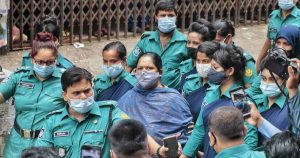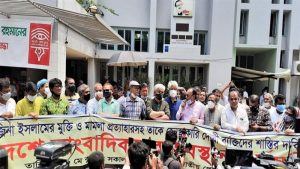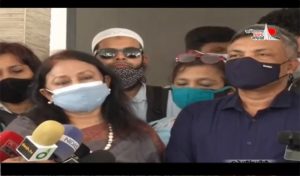Sumit Galhotra/CPJ Asia Program Senior Research Associate
“Everyone will get their turn in this war, especially the slave Pakistani media,” warned Ehsanullah Ehsan, spokesman for the Pakistani Taliban on Twitter this week. “We are just waiting for the appropriate time.”The warning from the Pakistani Taliban faction Jamaat-ur-Ahrar that the press could be the next target in an attack came as the militant group claimed responsibility for the devastating Easter Day terrorist attack in Lahore that left more than 70 dead and hundreds injured.
Direct threats from terrorists are not new for the country’s press. Concerns for journalist security in Pakistan was the impetus for a CPJ mission to the country two years ago, during which Prime Minister Nawaz Sharif pledged to take several steps to improve press safety. But when CPJ spoke with three Pakistani journalists this week, they all said they still take such threats seriously.
Iqbal Khattak, a freelance journalist and the national coordinator on journalists’ safety for the Pakistan Coalition on Media Safety, told CPJ, “I think every journalist is taking every threat seriously knowing that the originators can cause harm as well, besides delivering the threat.”
He said that while the threat is not new, “They repeated what previously they have been saying to pressure media in Pakistan.”
Prominent Pakistani journalist Hamid Mir, who survived two attempts on his life in 2012 and 2014 and has been threatened numerous times, told CPJ threats against the media are constant and that he takes any warning from the Pakistani Taliban “very seriously.” Mir, who is the senior news anchor for the privately owned channel Geo News, told CPJ that threats often follow condemnation in the press of terrorist attacks, and in many instances militants act on the warnings they have issued.
(CPJ is an independent, nonprofit organization that works to safeguard press freedom worldwide.)




